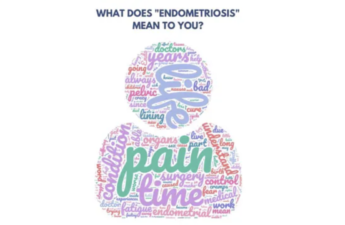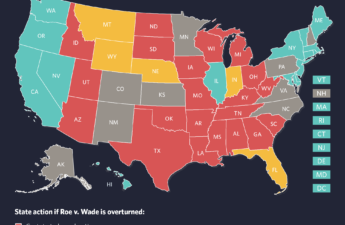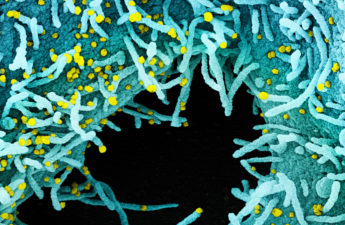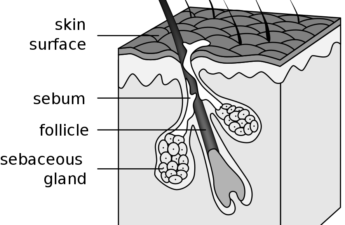Why do some of us hate exercise? And how can we overcome this to reap the lifesaving benefits of getting the body moving?
Endometriosis: How advocacy, awareness and algorithms could shorten the long wait for diagnosis and treatment
Endometriosis affects an estimated 200 million people worldwide. Despite its prevalence, those living with the disease often wait an average of 7.5 years between start of symptoms and diagnosis. This delay is due to a variety of reasons, including medical dismissal, a low prioritization of the condition and its overall misrepresentation in research funding, policy and media.
Omicron XE is spreading in the UK – a virologist explains what we know about this hybrid variant
Recombination occurs when two different variants infect the same cell, in the same person, at the same time. From there, they can combine their genetic material, resulting in a virus that possesses a mix of genes from both infecting “parent” viruses. This recombinant variant may then spread to other people – as has been the case with omicron XE.
Scientists track how the brain changes over a lifetime
The volume of grey matter (brain cells) increases rapidly from mid-gestation onwards, peaking just before we are six years old. It then begins to decrease slowly. The volume of white matter (brain connections) also increased rapidly from mid-gestation through early childhood and peaks just before we are 29 years old. The decline in white matter volume begins to accelerate after 50 years.
What is palliative care? How is it different from hospice?
Palliative care was not associated with shortened survival, pushing back against a popular assumption that pursuing palliative care means “giving up” on fighting disease. In fact, one influential study found that patients with advanced lung cancer who receive specialty palliative care in addition to standard oncology care lived almost three months longer than patients who received standard oncology care only.
The Fractious Evolution of Pediatric Transgender Medicine
Pediatric transgender medicine is a new field with a lot of questions yet to be answered by science. What is the long-term impact of blocking puberty on a young person’s health? Can practitioners correctly determine which youngsters will still identify as trans when they are adults? Do the psychological assessments contribute to children’s suffering by delaying access to puberty blockers and hormones? Why has the number of teens coming forward to receive transgender medical care, particularly those assigned female at birth, risen so dramatically in recent years?
Remind me again, why is salt bad for you?
Salt is a chemical compound made of sodium and chloride, and this is the main form in which we consume it in our diet. Of these two elements, it’s the sodium we need to worry about.
Blue States Enact New Laws to Create Abortion Havens
In March, Washington Democratic Gov. Jay Inslee signed a bill prohibiting the state from taking legal action against people seeking an abortion and those who assist them, to ward off any attempts to enact a Texas-style abortion ban that calls on private citizens to sue anyone suspected of aiding an abortion.
Doctors Trying to Prescribe Abortion Pills Across State Lines Stymied by Legislation
Many states already restrict doctors’ ability to consult with patients online or by phone and/or dispense abortion pills through mail-order pharmacies. A crop of new legislation could shut them out, pushed by lawmakers who oppose abortion and argue the medication is too risky to be prescribed without a thorough, in-person examination.
Seizures of fentanyl-containing pills rise dramatically
The number of individual pills seized by law enforcement increased nearly 50-fold from the first quarter of 2018 to the last quarter of 2021 and the proportion of pills to total seizures more than doubled, with pills representing over a quarter of illicit fentanyl seizures by the end of 2021.
What is aphasia? An expert explains the condition forcing Bruce Willis to retire from acting
Almost everyone with aphasia struggles when trying to come up with the names of things they know, but can’t find the name for. And because of that, they have trouble using words in sentences. It also affects the ability of those with the condition to read and write.
Second COVID-19 booster dose recommended for certain individuals
People age 50 and older and certain immunocompromised individuals can now get a second booster dose of an mRNA (Pfizer-BioNTech or Moderna) COVID-19 vaccine at least four months after receiving their initial booster dose.
Trying to cut back on alcohol? Here’s what works
Most people successfully quit or cut back their alcohol consumption on their own. But people who drink more frequently are much more likely to have symptoms of dependence and might find it more difficult
What is alopecia? It’s no laughing matter for millions of Black American women
Alopecia is a medical word that refers to hair loss generally. And there are descriptors added which can refer to where the hair loss is occurring, or to the cause of it. Traction alopecia, for example, is hair loss from trauma or chronic inflammatory changes to the hair follicles.
What’s next with face masks?
Keep wearing them in public, wear the best mask available and pay attention to fit.














